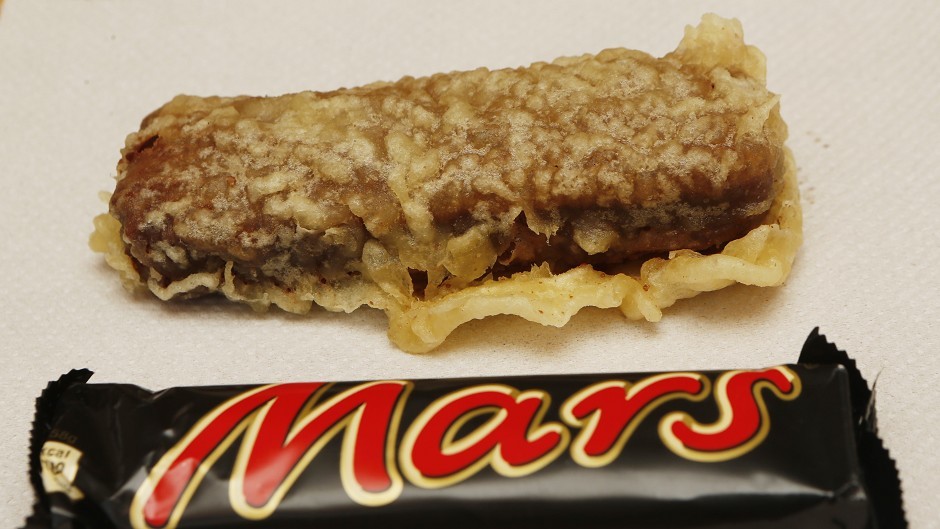Writers, cartoonists and commentators who perpetuate the notion that the deep-fried Mars bar represents culinary Scotland are guilty of a politically-motivated slur, it has been claimed.
Christine Knight, whose Wellcome Trust project at the University of Edinburgh investigates the history of negative stereotyping of the Scottish diet, will voice her claim at a conference on food this week.
The high-calorie battered bar, first created in Stonehaven’s Carron Fish Bar, has become shorthand for poor Scottish nutrition, health and obesity rates.
Ms Knight contends that the confection is used throughout the media, including international travel guides, in a derogatory way.
She said that like the haggis before it, jokes about the deep-friend Mars bar emerged during a period when the relationship between Scotland and England had been changing and uneasy.
Around the time of the Act of Union in 1707, the Jacobite Rising in the 1740s and the appointment of the Earl of Bute as Britain’s first Scottish-born prime minister in 1762 similar stereotypes were peddled.
Ms Knight, who will address Scotland’s Foodscape, organised by Queen Margaret University, said: “This may partly explain why the late 20th and early 21st centuries, with the establishment of the Scottish parliament and the recent referendum on Scottish independence, have seen negative stereotypes of the Scottish diet re-emerge so strongly.”
Dr Samuel Johnson once defined oats as a grain which in England is given to horses but in Scotland supports the people.
Ms Knight added: “The haggis was just one of a range of culinary stereotypes and metaphors that were used to stigmatise and satirise the Scots and now the deep-fried Mars bar has replaced haggis in political cartoon and satires about Scotland.”
